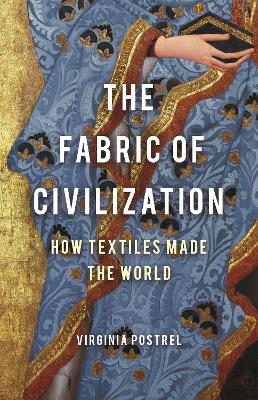Reviewed by Jeff Sexton on
Reading updates
- Started reading
- 22 July, 2020: Finished reading
- 22 July, 2020: Reviewed

The story of humanity is the story of textiles-as old as civilization itself. Textiles created empires and powered invention. They established trade routes and drew nations' borders. Since the first thread was spun, fabric has driven technology, business, politics, and culture.
In The Fabric of Civilization, Virginia Postrel traces this surprising history, exposing the hidden ways textiles have made our world. The origins of chemistry lie in the coloring and finishing of cloth. The beginning of binary code-and perhaps all of mathematics-is found in weaving. Selective breeding to produce fibers heralded the birth of agriculture. The belt drive came from silk production. So did microbiology. The textile business funded the Italian Renaissance and the Mughal Empire; it left us double-entry bookkeeping and letters of credit, the David and the Taj Mahal. From the Minoans who exported woolen cloth colored with precious purple dye to Egypt, to the Romans who wore wildly expensive Chinese silk, the trade and production of textiles paved the economic and cultural crossroads of the ancient world. As much as spices or gold, the quest for fabrics and dyes drew sailors across strange seas, creating an ever-more connected global economy.
Synthesizing groundbreaking research from economics, archaeology, and anthropology, Postrel weaves a rich tapestry of human cultural development.